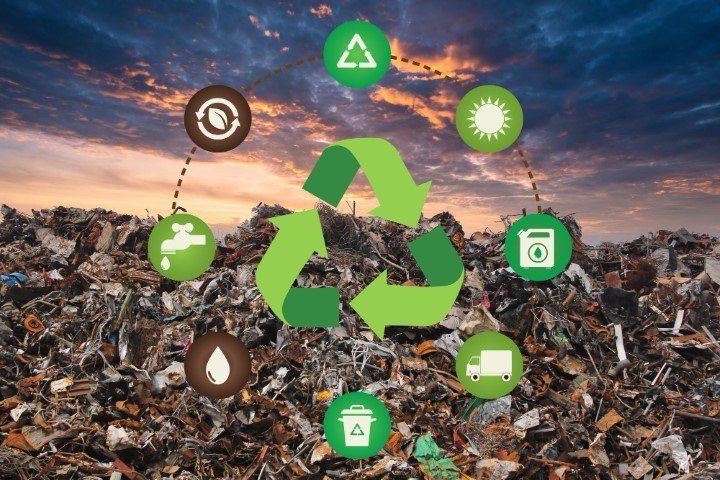Blog
Waste Reduction: Strategies for Minimizing Household Waste
In a world where environmental sustainability is paramount, reducing household waste is a crucial step towards a greener future. Every year, landfills receive tons of waste that could have been minimized or diverted through conscious consumer choices and responsible disposal methods. By adopting waste reduction strategies in our daily lives, we can significantly reduce our ecological footprint and contribute to a more sustainable planet. Here are some effective ways to minimize household waste.
1. Embrace the 5 R’s
The “5 R’s” hierarchy is a useful framework for waste reduction:
- Refuse: Start by refusing items you don’t need, such as single-use plastics or promotional materials.
- Reduce: Minimize your consumption of products that generate waste, especially those with excessive packaging.
- Reuse: Extend the life of items by repairing, repurposing, or donating them. Use reusable containers and bags.
- Recycle: Properly sort and recycle materials like paper, glass, plastic, and metal, following local recycling guidelines.
- Rot: Compost organic waste like food scraps, yard trimmings, and non-diseased plant materials to divert them from landfills.
2. Buy in Bulk
Purchase items in bulk to reduce packaging waste. Bring your own containers or reusable bags to refill products like grains, nuts, and detergents at stores that offer bulk bins.
3. Opt for Reusable Products
Switch to reusable items wherever possible. Use cloth shopping bags, stainless steel water bottles, and washable cloth napkins instead of disposable alternatives.
4. Compost Kitchen Scraps
Set up a compost bin for your kitchen scraps and yard waste. Composting not only diverts organic waste from landfills but also creates nutrient-rich compost for your garden.
5. Avoid Single-Use Plastics
Single-use plastics are a significant source of waste and pollution. Say no to plastic bags, straws, utensils, and bottles. Instead, choose reusable and sustainable alternatives.
6. Repair Instead of Replace
Before discarding broken items, consider whether they can be repaired. Repairing appliances, clothing, and furniture extends their lifespan and reduces waste.
7. Mindful Meal Planning
Plan your meals to reduce food waste. Make a shopping list, store food properly, and use leftovers creatively to minimize food disposal.
8. Use a Water Filter
Invest in a water filter instead of buying bottled water. It reduces plastic waste and can save you money in the long run.
9. Opt for Digital
Reduce paper waste by opting for digital documents, billing, and communication wherever possible. Use email, e-books, and online banking to minimize paper use.
10. Donate or Sell Unwanted Items
Instead of throwing away items you no longer need, consider donating them to charity or selling them online. This reduces waste and benefits others.
11. Proper Hazardous Waste Disposal
Dispose of hazardous waste, such as batteries and electronics, according to local regulations. Many communities have designated drop-off points for these items.
12. Buy Secondhand
Consider purchasing secondhand items, from clothing and furniture to electronics and appliances. Thrift stores, online marketplaces, and garage sales can offer budget-friendly and sustainable options.
13. Support Eco-Friendly Brands
Choose products from companies that prioritize sustainability and eco-friendly packaging. Support brands that use recycled materials and minimize waste throughout their production process.
14. Educate and Encourage Others
Share your knowledge and enthusiasm for waste reduction with friends and family. Encourage them to adopt similar practices and create a culture of sustainability within your community.
15. Track Your Progress
Keep a waste reduction journal to track your progress and set goals for waste reduction. Celebrate your achievements, no matter how small, to stay motivated.
By incorporating these waste reduction strategies into your daily routine, you can significantly minimize household waste, reduce your environmental impact, and contribute to a more sustainable and eco-conscious lifestyle. Every effort counts in the global endeavor to reduce waste and build a more environmentally responsible future.




